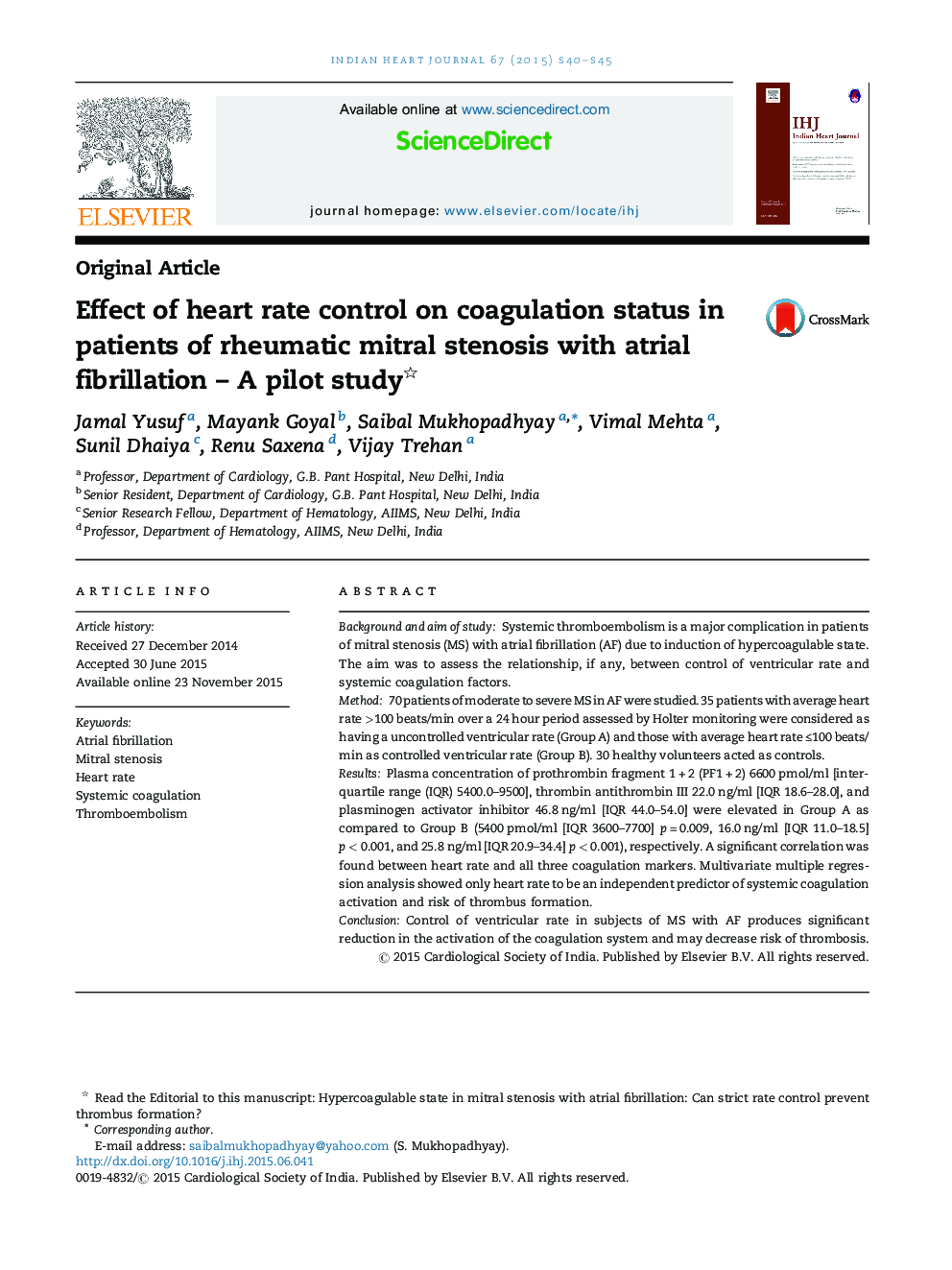| Article ID | Journal | Published Year | Pages | File Type |
|---|---|---|---|---|
| 5962204 | Indian Heart Journal | 2015 | 6 Pages |
Background and aim of studySystemic thromboembolism is a major complication in patients of mitral stenosis (MS) with atrial fibrillation (AF) due to induction of hypercoagulable state. The aim was to assess the relationship, if any, between control of ventricular rate and systemic coagulation factors.Method70 patients of moderate to severe MS in AF were studied. 35 patients with average heart rate >100 beats/min over a 24 hour period assessed by Holter monitoring were considered as having a uncontrolled ventricular rate (Group A) and those with average heart rate â¤100 beats/min as controlled ventricular rate (Group B). 30 healthy volunteers acted as controls.ResultsPlasma concentration of prothrombin fragment 1 + 2 (PF1 + 2) 6600 pmol/ml [interquartile range (IQR) 5400.0-9500], thrombin antithrombin III 22.0 ng/ml [IQR 18.6-28.0], and plasminogen activator inhibitor 46.8 ng/ml [IQR 44.0-54.0] were elevated in Group A as compared to Group B (5400 pmol/ml [IQR 3600-7700] p = 0.009, 16.0 ng/ml [IQR 11.0-18.5] p < 0.001, and 25.8 ng/ml [IQR 20.9-34.4] p < 0.001), respectively. A significant correlation was found between heart rate and all three coagulation markers. Multivariate multiple regression analysis showed only heart rate to be an independent predictor of systemic coagulation activation and risk of thrombus formation.ConclusionControl of ventricular rate in subjects of MS with AF produces significant reduction in the activation of the coagulation system and may decrease risk of thrombosis.
